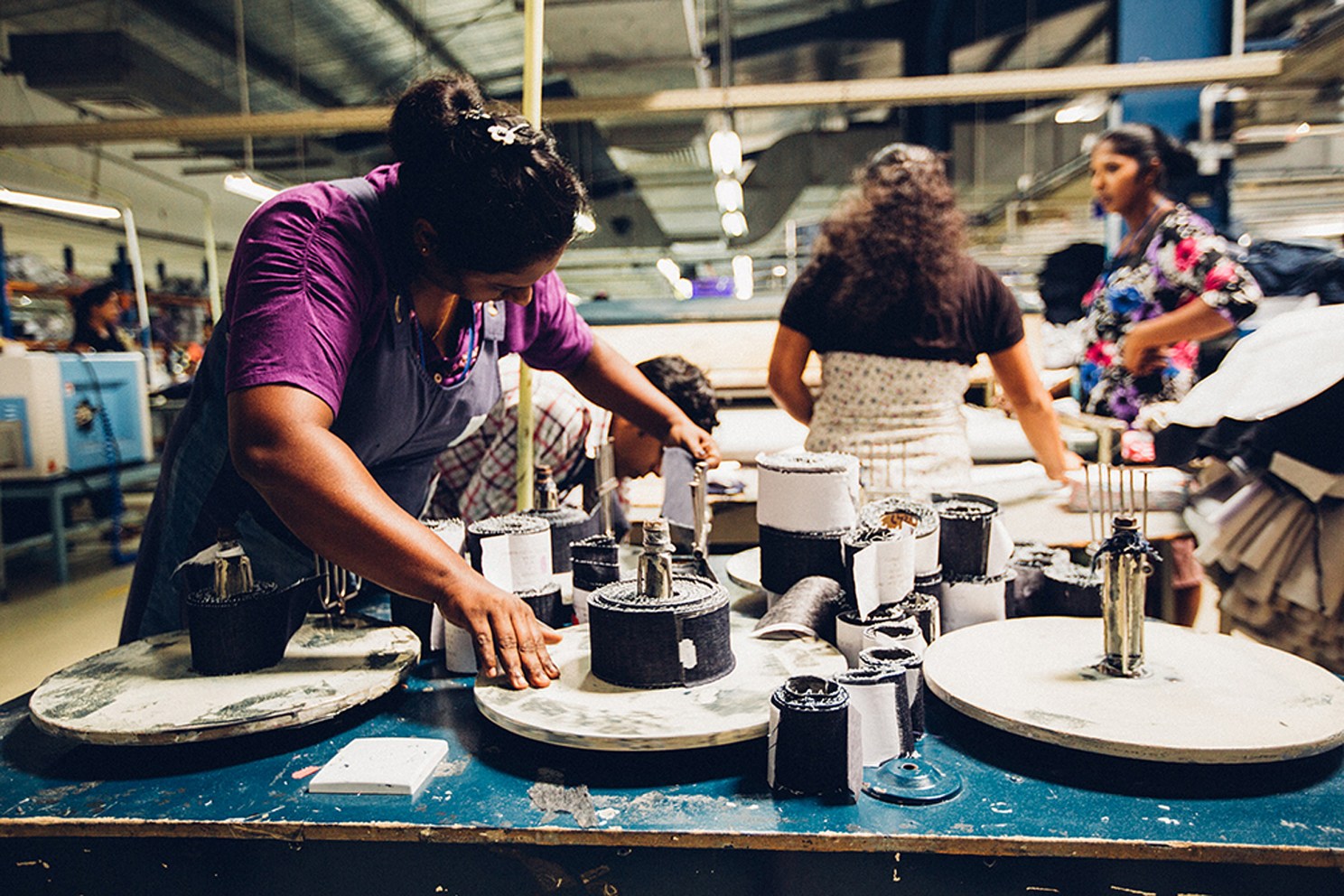Initiative to evaluate worker well-being securely, using blockchain

Photo courtesy of Levi Strauss & Co.
Workers around the world lack mechanisms to safely and confidentially advocate for change or voice concerns related to their work, safety, health and overall well-being. According to the World Health Organization, more than 50 percent of workers in many countries have no social protection and are subject to lax enforcement of occupational health and safety standards.
During the past two years, the Harvard Chan SHINE program worked alongside business, technology and non-profit organizations to develop a blockchain-based solution to assess health and working conditions in supply chains. The project was a collaboration with Levi Strauss & Co., New America, and ConsenSys, and was funded by a grant from the U.S. Department of State.
By integrating the SHINE Well-being Survey, a research tool based on universal human needs for well-being, into a secure blockchain platform that can be deployed in-person or remotely, workers are empowered to safely share their workplace experiences. The solution that was developed, Survey Assure, is open source and freely available for others to use, modify, and redistribute.
Implemented among garment factory workers in Mexico and Poland, this crucial first step in the transparent evaluation of working conditions is designed to improve well-being and foster trust between brands, factory leadership and workers. Leveraging this technology for the evaluation of the human condition is a significant innovation with broad potential for positive impact on worker well-being worldwide.
To learn more about how these new models increase trust, transparency, and accountability, join SHINE Executive Director, Eileen McNeely, and SHINE Research Manager, Heloisa Jardim for a webinar discussion on Wednesday, March 31 at 1 p.m. EST. The event will discuss how to create a comprehensive workforce-wide view of factory conditions and the health and well-being of workers, while protecting the identity of survey respondents and recording immutable data, and thereby improving worker well-being and building more sustainable supply chains.
Register for the event here.





